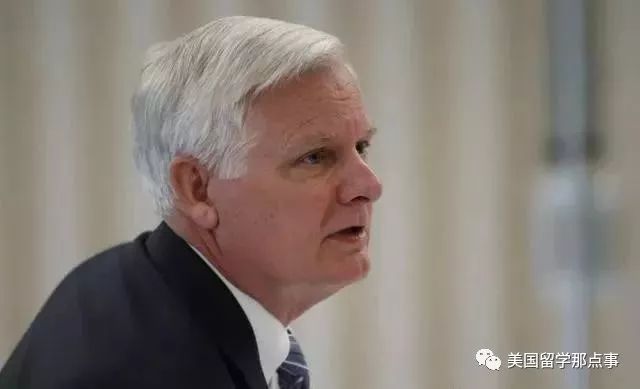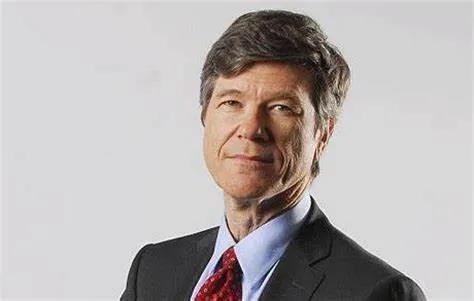Abraham Lincoln (February 12, 1809 – April 15, 1865) served as the 16th President of the United States from March 1861 until his assassination in April 1865. He successfully led his country through its greatest internal crisis, the American Civil War, preserving the Union and ending slavery. Before his election in 1860 as the first Republican president, Lincoln had been a country lawyer, an Illinois state legislator, a member of the United States House of Representatives, and twice an unsuccessful candidate for election to the U.S. Senate. As an outspoken opponent of the expansion of slavery in the United States, Lincoln won the Republican Party nomination in 1860 and was elected president later that year. His tenure in office was occupied primarily with the defeat of the secessionist Confederate States of America in the American Civil War. He introduced measures that resulted in the abolition of slavery, issuing his Emancipation Proclamation in 1863 and promoting the passage of the Thirteenth Amendment to the Constitution. Six days after the large-scale surrender of Confederate forces under General Robert E. Lee, Lincoln became the first American president to be assassinated.
Lincoln had closely supervised the victorious war effort, especially the selection of top generals, including Ulysses S. Grant. Historians have concluded that he handled the factions of the Republican Party well, bringing leaders of each faction into his cabinet and forcing them to cooperate. Lincoln successfully defused the Trent affair, a war scare with Britain late in 1861. Under his leadership, the Union took control of the border slave states at the start of the war. Additionally, he managed his own reelection in the 1864 presidential election.
Copperheads and other opponents of the war criticized Lincoln for refusing to compromise on the slavery issue. Conversely, the Radical Republicans, an abolitionist faction of the Republican Party, criticized him for moving too slowly in abolishing slavery. Even with these opponents, Lincoln successfully rallied public opinion through his rhetoric and speeches; his Gettysburg Address (1863) became an iconic symbol of the nation"s duty. At the close of the war, Lincoln held a moderate view of Reconstruction, seeking to speedily reunite the nation through a policy of generous reconciliation. Lincoln has consistently been ranked by scholars as one of the greatest of all U.S. Presidents.
Early political career and military service
Lincoln began his political career in March 1832 at age 23 when he announced his candidacy for the Illinois General Assembly. He was esteemed by the residents of New Salem, but he didn"t have an education, powerful friends, or money. The centerpiece of his platform was the undertaking of navigational improvements on the Sangamon River. Before the election he served as a captain in a company of the Illinois militia during the Black Hawk War, although he never saw combat. Lincoln returned from the militia after a few months and was able to campaign throughout the county before the August 6 election. At 6 feet 4 inches (1.93 m), he was tall and "strong enough to intimidate any rival." At his first political speech, he grabbed a man accosting a supporter by his "neck and the seat of his trousers", and threw him. When the votes were counted, Lincoln finished eighth out of thirteen candidates (only the top four were elected), but he did manage to secure 277 out of the 300 votes cast in the New Salem precinct.
US Postage, 1959 issue, depicting the young Abe Lincoln.In 1834, he won an election to the state legislature. He was labeled a Whig, but ran a bipartisan campaign. He then decided to become a lawyer, and began teaching himself law by reading Commentaries on the Laws of England. Admitted to the bar in 1837, he moved to Springfield, Illinois, that April, and began to practice law with John T. Stuart, Mary Todd"s cousin, who let Lincoln have the run of his law library while studying to be a lawyer. With a reputation as a formidable adversary during cross-examinations and closing arguments, Lincoln became an able and successful lawyer. In 1841, Lincoln entered law practice with William Herndon, whom Lincoln thought "a studious young man". He served four successive terms in the Illinois House of Representatives as a representative from Sangamon County, affiliated with the Whig party.In 1837, he and another legislator declared that slavery was "founded on both injustice and bad policy" the first time he had publicly opposed slavery. In the 1835–1836 legislative session he"d voted to restrict suffrage to whites only. He would later say[citation needed] that he had been against slavery since he was a boy, but being labelled an abolitionist was "political suicide" in Sangamon County in those years, and so he chose his words carefully when discussing the issue publicly.
Republican politics 1854–1860
Lincoln returned to politics in response to the Kansas-Nebraska Act (1854), which expressly repealed the limits on slavery"s extent as established by the Missouri Compromise (1820). Illinois Democrat Stephen A. Douglas, the most powerful man in the Senate, proposed popular sovereignty as the solution to the slavery impasse, and incorporated it into the Kansas–Nebraska Act. Douglas argued that in a democracy the people should have the right to decide whether to allow slavery in their territory, rather than have such a decision imposed on them by the national Congress.
Lincoln in 1860In the October 16, 1854, "Peoria Speech",Lincoln outlined his position on slavery that he would repeat over the next six years on the route to the presidency.
“ [The Act has a] declared indifference, but as I must think, covert real zeal for the spread of slavery, I cannot but hate it. I hate it because of the monstrous injustice of slavery itself. I hate it because it deprives our republican example of its just influence in the world — enables the enemies of free institutions, with plausibility, to taunt us as hypocrites — causes the real friends of freedom to doubt our sincerity, and especially because it forces so many really good men amongst ourselves into an open war with the very fundamental principles of civil liberty — criticizing the Declaration of Independence, and insisting that there is no right principle of action but self-interest.”
According to a newspaper account of the speech, Lincoln spoke with "a thin high-pitched falsetto voice of much carrying power, that could be heard a long distance in spite of the hustle and bustle of the crowd ... [with] the accent and pronunciation peculiar to his native state, Kentucky."
In late 1854, Lincoln decided to run for the United States Senate as a Whig. Despite leading in the first six rounds of voting in the state legislature, Lincoln instructed his backers to vote for Lyman Trumbull to prevent pro-Nebraska candidate Joel Aldrich Matteson from winning. Trumbull beat Matteson in the tenth round of voting. The Whigs had been irreparably split by the Kansas-Nebraska Act. "I think I am a Whig, but others say there are not Whigs, and I am an abolitionist, even though I do no more than oppose the expansion of slavery" he said. Drawing on remnants of the old Whig party, and on disenchanted Free Soil, Liberty, and Democratic party members, he was instrumental in forging the shape of the new Republican Party. At the Republican convention in 1856, Lincoln placed second in the contest to become the party"s candidate for Vice-President.
In 1857–58, Douglas broke with President Buchanan, leading to a fight for control of the Democratic Party. Some eastern Republicans even favored the reelection of Douglas in 1858, since he had led the opposition to the Lecompton Constitution, which would have admitted Kansas as a slave state. Accepting the Republican nomination for Senate in 1858, Lincoln delivered his famous speech: ""A house divided against itself cannot stand."(Mark 3:25) I believe this government cannot endure permanently half slave and half free. I do not expect the Union to be dissolved — I do not expect the house to fall — but I do expect it will cease to be divided. It will become all one thing, or all the other." The speech created an evocative image of the danger of disunion caused by the slavery debate, and rallied Republicans across the north.
Presidency and the Civil War
With the emergence of the Republicans as the nation"s first major sectional party by the mid-1850s, the old Second Party System collapsed and a realignment created the Third Party System. It became the stage on which sectional tensions were played out. Although little of the West–the focal point of sectional tensions– was fit for cotton cultivation, Southern secessionists read the political fallout as a sign that their power in national politics was rapidly weakening. The slave system had been buttressed by the Democratic Party, which was increasingly seen by anti-slavery elements as representing a more pro-Southern position that unfairly permitted the Slave Power to prevail in the nation"s territories and to dominate national policy before the Civil War. Yet the Democrats suffered a significant reverse in the electoral realignment of the mid-1850s; they lost the dominance they had achieved over the Whig Party and, indeed, were the minority party in most of the northern states. The 1854 election was a Realigning election or "critical election" that saw a realignment of voting patterns. Abraham Lincoln"s election was a watershed in the balance of power of competing national and parochial interests and affiliations.
Gettysburg Address
Although the Battle of Gettysburg was a Union victory, it was also the bloodiest battle of the war and dealt a blow to Lincoln"s war effort. As the Union Army decreased in numbers due to casualties, more soldiers were needed to replace the ranks. Lincoln"s 1863 military drafts were considered "odious" among many in the north, particularly immigrants. The New York Draft Riots of July 1863 were the most notable manifestation of this discontent. Writing to Lincoln in September 1863, the Governor of Pennsylvania, Andrew Gregg Curtin, warned that political sentiments were turning against Lincoln and the war effort:
If the election were to occur now, the result would be extremely doubtful, and although most of our discreet friends are sanguine of the result, my impression is, the chances would be against us. The draft is very odious in the State ... the Democratic leaders have succeeded in exciting prejudice and passion, and have infused their poison into the minds of the people to a very large extent, and the changes are against us.
Therefore, in the fall of 1863, Lincoln"s principal aim was to sustain public support for the war effort. This goal became the focus of his address at the Gettysburg battlefield cemetery on November 19.
The Gettysburg Address is one of the most quoted speeches in United States history. It was delivered at the dedication of the Soldiers" National Cemetery in Gettysburg, Pennsylvania, on the afternoon of Thursday, November 19, 1863, during the American Civil War, four and a half months after the Union armies defeated those of the Confederacy at the decisive Battle of Gettysburg. Abraham Lincoln"s carefully crafted address, secondary to other presentations that day, came to be regarded as one of the greatest speeches in American history. In just over two minutes, Lincoln invoked the principles of human equality espoused by the Declaration of Independence and redefined the Civil War as a struggle not merely for the Union, but as "a new birth of freedom" that would bring true equality to all of its citizens, and that would also create a unified nation in which states" rights were no longer dominant. Beginning with the now-iconic phrase, Four score and seven years ago ..., Lincoln referred to the events of the Civil War and described the ceremony at Gettysburg as an opportunity not only to consecrate the grounds of a cemetery, but also to dedicate the living to the struggle to ensure that "government of the people, by the people, for the people, shall not perish from the earth".
亚伯拉罕·林肯(Abraham Lincoln,1809年-1865年),美国政治家,第16任总统(任期:1861年3月4日-1865年4月15日),也是首位共和党籍总统。在其总统任内,美国爆发了内战,史称南北战争。林肯击败了南方分离势力,废除了奴隶制度,维护了国家的统一。但就在内战结束后不久,林肯不幸遇刺身亡。他是第一位遭到刺杀的美国总统,更是一位出身贫寒的伟大总统。
简介
1809年2月12日,林肯出生在肯塔基州哈丁县一个清贫的家庭,父亲是位鞋匠,用他自己的话说,他的童年是“一部贫穷的简明编年史”。小时候,他帮助家里搬柴、提水、做农活等。 父母是英国移民的后裔,他们以种田和打猎为生。1816年,林肯全家迁至印第安纳州西南部,开荒种地为生。9岁的时候,林肯的母亲去世了。
一年后,父亲与一位贤惠的女人结婚。继母慈祥勤劳,对待前妻的子女如同己出。林肯也敬爱后母,一家人生活得和睦幸福。由于家境贫穷,林肯受教育的程度不高。为了维持家计,少年时的林肯当过俄亥俄河上的摆渡工、种植园的工人、店员和木工。18岁那年,身材高大(186cm)的林肯为一个船主所雇佣,与人同乘一条平底驳船顺俄亥俄河而下,航行千里到达奥尔良。
在25岁以前,林肯没有固定的职业,四处谋生。成年后,他成为一名当地土地测绘员,因精通测量和计算,常被人们请去解决地界纠纷。在艰苦的劳作之余,林肯始终是一个热爱读书的青年,他夜读的灯火总要闪烁到很晚很晚。在青年时代,林肯通读了莎士比亚的全部著作,读了《美国历史》,还读了许多历史和文学书籍。他通过自学使自己成为一个博学而充满智慧的人。在一场政治集会上他第一次发表了政治演说。由于抨击黑奴制,提出一些有利于公众事业的建议,林肯在公众中有了影响,加上他具有杰出的人品,1834年他被选为州议员。
两年后,林肯通过自学成为一名律师,不久又成为州议会辉格党领袖。1834年8月,25岁的林肯当选为州议员开始了自己的政治生涯同时管理乡间邮政所,也从事土地测量,并在友人的帮助下钻研法律。几年后,他成为一名律师。积累了州议员的经验之后,1846年,他当选为美国众议员。1847年,林肯作为辉格党的代表,参加了国会议员的竞选,获得了成功,第一次来到首都华盛顿。在此前后,关于奴隶制度的争论,成了美国政治生活中的大事。在这场争论中,林肯逐渐成为反对蓄奴主义者。他认为奴隶制度最终应归于消灭,首先应该在首都华盛顿取消奴隶制。代表南方种植园主利益的蓄奴主义者则疯狂地反对林肯。1850年,美国的奴隶主势力大增,林肯退出国会,继续当律师。
1860年,林肯成为共和党的总统候选人,11月,选举揭晓,以200万票当选为美国第16任总统,但在奴隶主控制的南部10个州,他没有得到1张选票。 大选揭晓后,南方种植园主制造,发动了叛变。南方11个州先后退出联邦,宣布成立“美利坚诸州同盟”,并制订了新的宪法,选举总统。 1861年4月,南方叛乱武装首先向北方挑起战争。林肯号召民众为维护联邦统一而战。
内战爆发初期,由于南方种植园主蓄谋叛乱已久,而林肯政府试图妥协,在战争中节节失利。首都华盛顿受到威胁。为扭转战局,1862年5月林肯政府颁布了《宅地法》,其中规定,美国公民交付10美元即可在西部得到160英亩的土地,连续耕种5年就可成为其主人。9月,又颁布《解放黑奴宣言》,废除了黑奴制,规定叛乱各州的黑奴是自由人。战争形式骤然改观。
1863年夏,北方军队转入反攻。1865年,南方叛军向北方军队投降,持续4年之久的内战以北方胜利告终。1865年4月14日晚,内战刚刚结束,林肯在华盛顿的福特剧院遇刺身亡。5月4日,林肯葬于橡树岭公墓。林肯领导美国人民维护了国家统一,废除了奴隶制,为资本主义的发展扫除了障碍,促进了美国历史的发展,一百多年来,受到美国人民的尊敬。由于林肯在美国历史上所起的进步作用,人们称赞他为“新时代国家统治者的楷模”。







